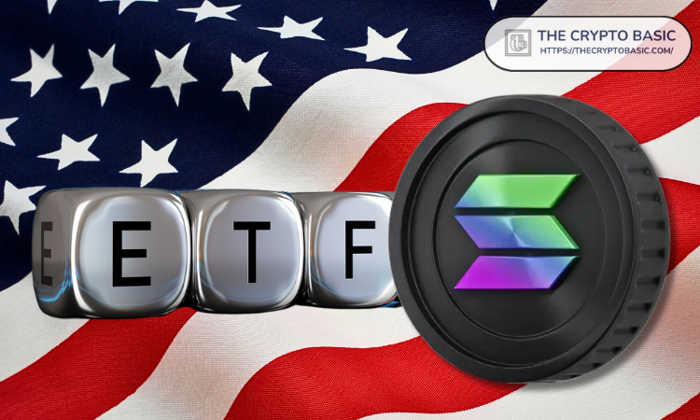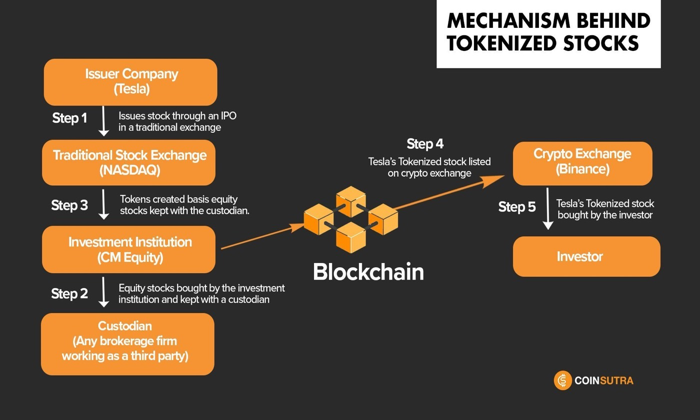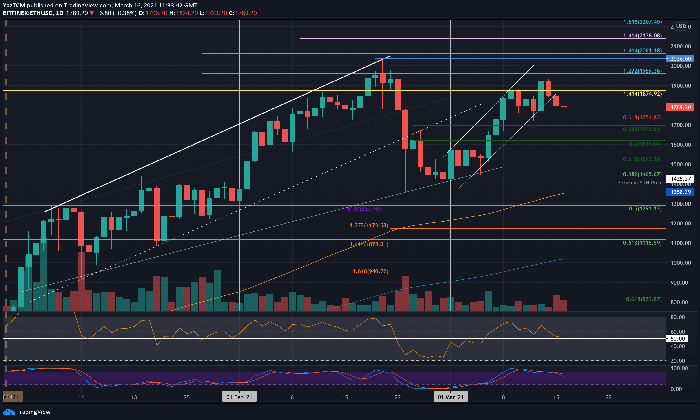Sweden is on the forefront of a cashless society, leading a revolution in digital payments that is reshaping how transactions occur. As this Nordic country embraces technology, the implications extend beyond mere convenience; they raise questions about the stability of centralized payment systems, highlighted by Ethereum co-founder Vitalik Buterin. He stresses that while centralized platforms provide efficiency, they can also be susceptible to vulnerabilities during financial crises. Amid growing concerns over cyber threats, Sweden’s government is now advocating for citizens to keep cash on hand as a safeguard. This stance underscores the necessity for decentralized payment methods, such as those offered by cryptocurrency, as viable alternatives in a rapidly changing economic landscape.
In recent years, Sweden has ventured into the realm of digital transactions, pushing the boundaries of a cashless economy. This development has spurred a dialogue about the reliability of centralized financial systems, as experts like Vitalik Buterin warn against their fragility, especially in times of turmoil. As the country moves towards advanced financial technologies, the conversation around decentralized finance and crypto solutions becomes increasingly relevant. The current trends indicate a shift in how individuals approach money management and payment options, presenting both challenges and opportunities for the future of economic interactions. Ultimately, the exploration of alternatives in this evolving landscape may hold the key to creating resilient financial systems that can withstand crises.
The Future of Sweden’s Cashless Society
Sweden has been a pioneer in the quest to remain at the forefront of a cashless society, with significant advances in digital payment technology. However, as the country moves closer to a completely cashless economy, it faces growing concerns regarding the reliability of centralized digital payment systems during emergencies. The shift towards a cashless society raises questions about the security of these systems, especially amid increasing cyber threats and financial instability that can disrupt such infrastructures.
Authorities in Sweden are now advocating for a renewed appreciation of cash, urging citizens to maintain a physical currency reserve amid fears of economic disruptions. This prioritization of cash reveals an acknowledgement that while digital payments offer convenience and speed, they also expose users to vulnerabilities—underscoring the need for alternatives outside centralized control.
Decentralized Payment Systems: A Solution?
Vitalik Buterin’s insights into decentralized payment systems suggest a promising pathway for enhancing financial security. As concerns about the robustness of centralized payment systems grow, decentralized platforms, like Ethereum, emerge as viable alternatives that can provide financial resilience. These systems are designed to operate without a central authority, potentially offering a more secure method for transactions during financial turmoil.
The potential for decentralized finance (DeFi) to serve as a robust backup in crisis situations is underscored by its inherent qualities of transparency and security. As Sweden reflects on its cashless approach, embracing decentralized payment technologies could pave the way for a more reliable financial ecosystem that mitigates dependence on vulnerable centralized institutions.
The Role of Ethereum in Financial Stability
Ethereum’s underlying technology offers a robust framework for cost-effective decentralized transactions, providing opportunities for secure and efficient payments. Its capability to facilitate smart contracts creates a streamlined way to execute transactions without intermediaries, making it ideal for crypto payments. Such innovations can enhance transaction efficiency while helping to avert the risks associated with centralized systems.
In considering the future of financial transactions, Buterin asserts that Ethereum’s development must be focused on resilience and privacy to fulfill a crucial role in providing stability during uncertain times. Enhancing Ethereum’s capabilities may lay the groundwork for a new paradigm in financial transactions—one that could address the limitations of current centralized systems under crises.
The Coexistence of Centralized and Decentralized Payments
Despite the rising popularity of decentralized financial solutions, industry experts, like Mercuryo’s Petr Kozyakov, emphasize that traditional centralized systems will not vanish overnight. Instead, a hybrid model is expected to emerge where centralized and decentralized payment options coexist. This balance may offer consumers the best of both worlds: the immediate efficiency of centralized systems and the security and privacy of decentralized options.
As consumer needs evolve, the demand for more flexible payment systems that combine the benefits of both digital and cash transactions will likely grow. Kozyakov’s assertion underscores the broader trend towards integrating crypto payments into everyday transactions, suggesting that while fiat currency remains essential, the landscape is shifting to accommodate new technologies that can deliver enhanced security and efficiency.
Cybersecurity Concerns in Payment Systems
The increasing digitization of financial transactions has spotlighted significant cybersecurity concerns, particularly for centralized payment systems. Events involving data breaches and cyberattacks on major payment processors have raised alarms about the reliability of these traditional systems. Acknowledging these risks, it is crucial for Sweden and other countries heading towards a cashless society to reinforce their cybersecurity measures.
Decentralized payment solutions, such as those built on the Ethereum blockchain, have the potential to alleviate some of these security concerns. By spreading transaction data across a network, they reduce the risk of mass breaches, offering more robust protection against cyber threats. As consumers become more conscious of security vulnerabilities, the appeal of decentralized solutions may increase, shaping the future of value exchange.
Impact of Financial Crises on Payment Systems
The ongoing financial crises around the globe have forced many nations, including Sweden, to rethink their approach to payment systems. The fragility of centralized options during economic turmoil has highlighted the necessity for more resilient alternatives. Sweden’s government has responded by advocating for a return to cash, presenting a pragmatic approach amid these pressures.
This wave of economic uncertainty has also brought decentralized payment systems to the forefront. Their potential to provide alternative financial solutions during challenging times has garnered attention from both policymakers and consumers. As countries evaluate their financial infrastructures, decentralized solutions may emerge as a preferred option, providing a safety net when traditional systems prove unreliable.
The Evolution of Payment Preferences
Consumer preferences regarding payment methods are evolving rapidly. There is a noticeable shift towards digital payments that reflect convenience and efficiency, particularly in a society that increasingly values speed and ease of transactions. However, recent events have prompted a reconsideration of these preferences, especially as individuals seek alternatives that offer greater security and resiliency during crises.
This evolving landscape indicates that while cashless transactions will continue to grow, there will also be a segment of the population that favors alternative payment solutions—be it decentralized crypto payments or retaining cash. This trend underlines the necessity for payment systems to adapt, providing varied options that cater to diverse consumer needs and preferences.
The Benefits and Challenges of Cashless Transactions
Transitioning to a cashless society presents both benefits and challenges. The advantages include increased efficiency, reduced transaction times, and improved tracking for financial management. However, the challenges are significant, particularly regarding accessibility for older populations and individuals without access to digital infrastructure. These issues illustrate that while a cashless approach offers many benefits, it is also important to maintain access to cash as a safety alternative.
Furthermore, as Sweden navigates these challenges, it’s necessary to evaluate the balance between innovation and security. The potential for decentralized systems to address some of these challenges offers a promising avenue for ensuring that all citizens can participate in the digital economy while still having access to essential financial resources.
Potential of Crypto Payments in Daily Transactions
The growing acceptance of crypto payments reflects an evolving financial landscape where traditional methods are increasingly being supplemented by digital currencies. As consumers become more familiar with cryptocurrencies like Ethereum, their potential for daily transactions becomes evident. Innovations in crypto payments can enhance transaction speeds and reduce fees, making them an attractive option for consumers and businesses alike.
However, widespread acceptance of crypto payments is still hampered by regulatory hurdles and technological limitations. While many see the advantages of adopting cryptocurrencies, lasting integration into the everyday payment systems requires overcoming these challenges. This highlights the need for collaboration between fintech innovators and regulatory bodies to create a conducive environment for crypto payments.
Frequently Asked Questions
What are the implications of Sweden’s transition to a cashless society?
Sweden’s transition to a cashless society highlights the efficiency of digital payment systems but reveals vulnerabilities associated with centralized payment infrastructure. As cash use declines, concerns about cyber threats and financial instability have prompted Swedish authorities to encourage citizens to maintain a cash reserve, emphasizing cash as a reliable alternative during crises.
How could Ethereum play a role in Sweden’s cashless society?
Ethereum could potentially serve as a decentralized payment alternative in Sweden’s cashless society. By leveraging blockchain technology, Ethereum-based solutions may offer increased resilience and privacy compared to centralized payment systems, presenting a more reliable option during financial crises.
What is the current status of cash transactions in Sweden’s cashless society?
As of 2025, only one in ten transactions in Sweden is conducted in cash, reflecting the country’s rapid move towards a cashless society. Despite this, recent guidance from authorities highlights the importance of retaining cash, due to concerns over the reliability of centralized digital payment systems.
What are the benefits and risks of centralized payment systems in Sweden?
Centralized payment systems in Sweden offer convenience and efficiency, but they also pose risks, particularly during times of crisis. As pointed out by Vitalik Buterin, these systems can be fragile, leading to instability and cyber threats that may disrupt financial transactions.
Why is Sweden encouraging citizens to keep cash despite advancing digital payments?
Sweden is encouraging citizens to keep cash on hand due to the vulnerabilities of centralized digital payment systems. This initiative underscores the importance of cash as a backup option during potential crises, ensuring that individuals have access to funds when digital transactions may fail.
Will cryptocurrencies replace traditional payment methods in Sweden’s cashless society?
While there is increasing adoption of crypto payments in Sweden’s cashless society, experts indicate that cryptocurrencies are unlikely to fully replace traditional fiat currency. Instead, they will coexist, with users opting for crypto payments when they provide practical advantages.
What are decentralized payment alternatives, and how do they relate to Sweden’s cashless society?
Decentralized payment alternatives, like those enabled by blockchain technologies such as Ethereum, offer a solution that mitigates the risks associated with centralized payment systems. In Sweden’s cashless society, these alternatives could enhance financial stability during crises by ensuring that transactions remain secure and reliable.
How does the financial crisis influence Sweden’s approach to cashless transactions?
The financial crisis has influenced Sweden’s approach to cashless transactions by prompting a reevaluation of the reliance on centralized payment systems. Concerns over cyber threats and the potential lack of access to funds during instability have led to a renewed focus on maintaining cash reserves.
What solutions exist to enhance the reliability of payments in a cashless society?
To enhance the reliability of payments in a cashless society like Sweden’s, solutions such as decentralized payment systems, like Ethereum, can be explored. These systems aim to provide resilience and privacy not typically found in centralized transactions, offering a safeguard during financial upheavals.
What lessons can be learned from Sweden’s cashless society for other nations?
Sweden’s cashless society illustrates the balance between innovation and security in financial transactions. Other nations can learn the importance of preparing for potential crises by maintaining cash access and exploring decentralized payment options to ensure resilience in their digital payment systems.
| Key Points | Details |
|---|---|
| Shift Toward Cashless Society | Sweden has rapidly transitioned to digital payments, but current crises prompt a reevaluation. |
| Concerns Over Centralized Systems | Vitalik Buterin highlights vulnerabilities during crises, advocating for decentralized alternatives. |
| Government Recommendations | Authorities urge citizens to keep cash reserves as a safety measure against disruptions. |
| Future Predictions | A prediction from 2018 indicated Sweden would become cashless by 2025, with only 10% of transactions in cash. |
| Role of Ethereum | Buterin believes Ethereum could provide a decentralized financial backup during crises. |
| Cryptocurrency Coexistence | Experts suggest cryptocurrencies and fiat currency will coexist rather than one replacing the other. |
Summary
Sweden’s cashless society is under scrutiny as it reevaluates the implications of centralized digital payment systems, particularly in light of vulnerabilities exposed by recent crises. With concerns regarding reliability, the Swedish government is encouraging citizens to maintain cash reserves, showcasing the importance of having backup financial options. This rethink reflects a broader trend where decentralized alternatives like Ethereum could play a critical role in financial stability during uncertain times, emphasizing the need for resilience in payment infrastructures.
Sweden’s journey towards a cashless society has garnered global attention, positioning it at the forefront of digital financial evolution. As this Nordic nation embraces digital payment platforms, discussions around the safety and resilience of these systems have intensified. Ethereum co-founder Vitalik Buterin has raised critical concerns about centralized payment systems, highlighting their vulnerability during crises. This ongoing shift towards cashless transactions has provoked Swedish authorities to urge citizens to consider alternative payment methods, including cash, as a safeguard against potential economic disruptions. Residents and policymakers alike are now exploring how decentralized payments could provide viable financial crisis alternatives that ensure stability and adaptability in an increasingly digital world.
The transformative shift towards a cashless economy in Sweden has sparked significant dialogue about the security and reliability of modern payment systems. Advocates for digital transactions emphasize the efficiency of these methods, yet thought leaders like Vitalik Buterin warn against their dependence due to centralized vulnerabilities. This has opened up conversations about decentralized finance solutions as a promising alternative for secure monetary transactions. As Swedes move closer to a future where less cash exchanges hands, the question arises: could integrating cryptocurrencies and decentralized payment options serve as reliable safeguards during potential financial upheavals? This exploration of alternative payment frameworks is essential as society navigates the complexities of modern economics.














